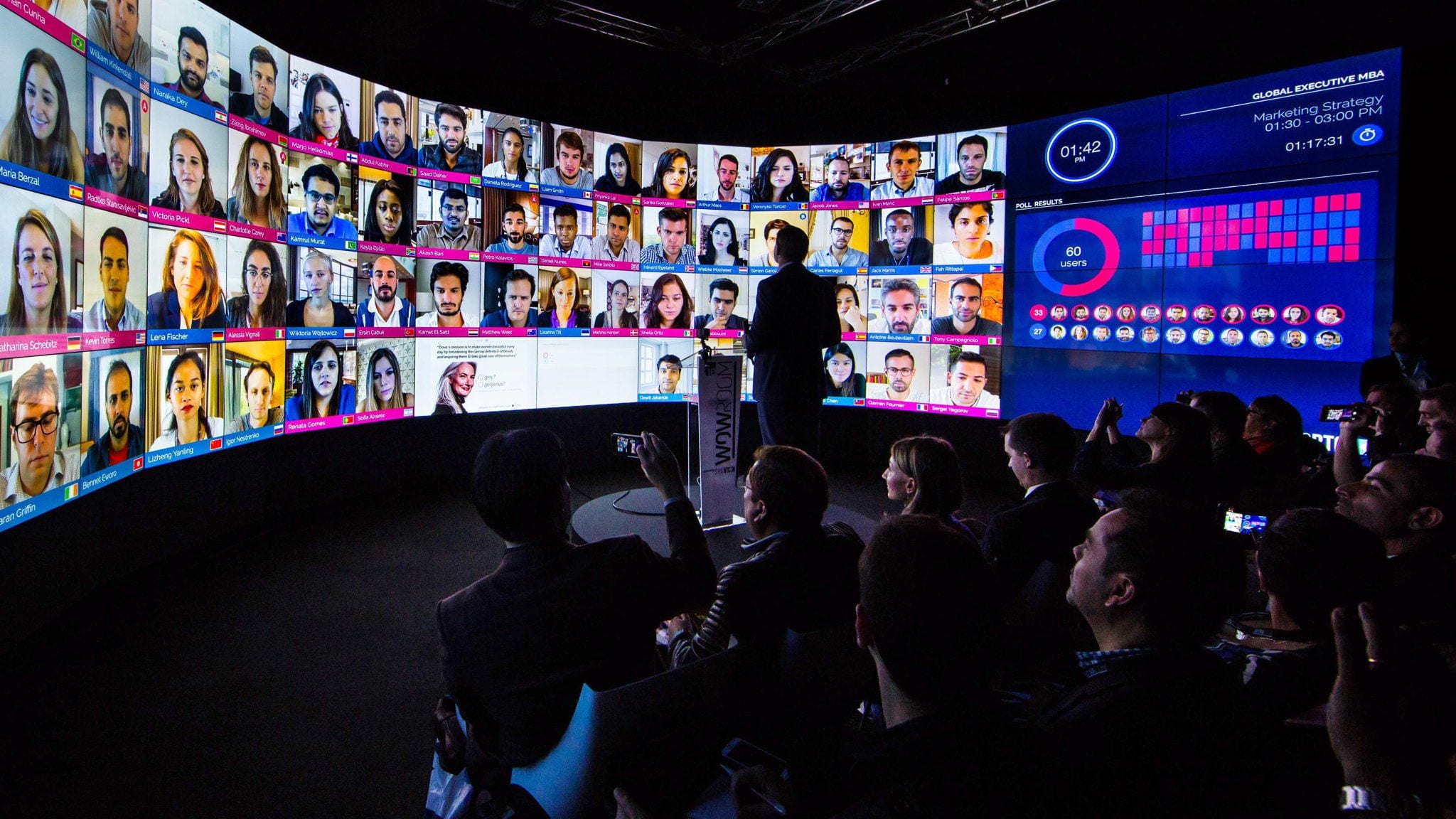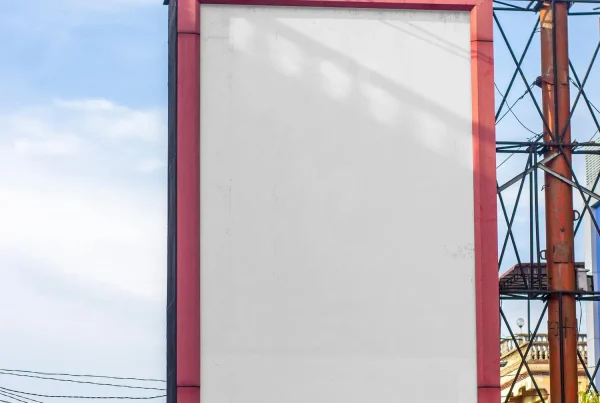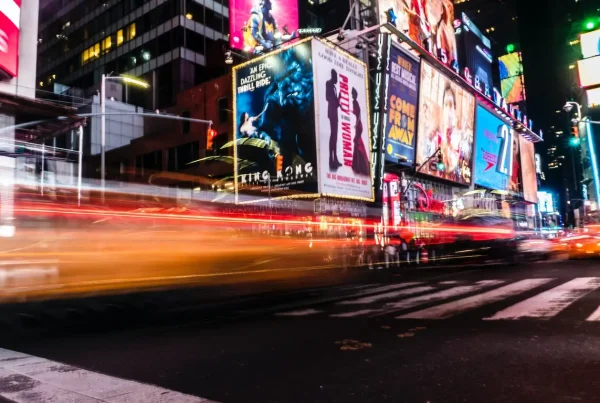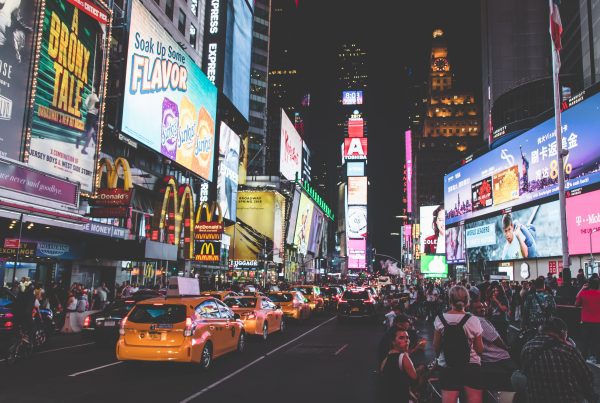If you want to set up video with a large format display, you have two major options: projection and LED panels. A lot of people have preconceived ideas of what each of these choices will look like. Understanding how they work and how each choice performs will help you to make a better decision for your home, business or outdoor display.
How Projection Works
As you likely know, projectors work in two parts. There is the projector unit itself and a screen, typically a matte white, that receives the image. Many people are familiar with roll-up versions of these screens. However, they can also be permanently installed in place. In many cases, the projector can be concealed from view if desired. All you need is the unobstructed space to set it all up in.
How LED Panels Work
LED panels are essentially a large television screen broken into several smaller, more manageable sections. These panels are connected to and managed by a central system. They can be made very thin and have no bevel on the edges (a common drawback of older LCD panels). Therefore, they require very little space other than the screen and a place to put the control system (often concealed inside the wall or placed remotely).
Projection Vs. LED Panels
The setup of a projector screen versus LED panels is quite different. Although the results may seem similar at first glance, the performance is as different as the technology. Each has some benefits and some drawbacks.
Brightness
LED panels have become increasingly popular in recent years, largely thanks to their brightness. Light-emitting diodes are a strong and effective source of light. This means that they can be clearly seen even in a bright, outdoor setting.
Furthermore, LED panels tend to be much more consistent than projectors in terms of brightness. They are less affected by ambient light. So, the picture will be as clear outside in the sun as it is indoors.
Projectors can lose their brightness. This is sometimes as much as 30% in a single year. LEDs remain at almost maximum brightness throughout their lifespan (which is thousands of hours).
Finally, LEDs are capable of going completely black. This creates a deeper, higher contrast image on the screen.
Verdict: LED panels easily outperform projectors in terms of brightness. They are brighter, last longer and more resilient to environmental interference such as sunlight.
Picture Quality
High-quality projectors and LED panels have similar performance in terms of resolution and definition. Both setups can manage 4K (ultra-high definition) or higher resolution. Some lower-end projectors can only manage standard definition picture.
Projectors can produce images of almost any size up to a movie screen (or possibly even larger). Although, these large-format projects can be expensive. LED panels are typically only up to about 120 inches each, but they can be tiled to create screens of any size.
LEDs have an edge in terms of contrast, as mentioned above. This can help with high-dynamic range performance.
Verdict: LED panels have a slight edge in this category. They handle HDR and contrast better, leading to a clearer picture. However, projectors perform admirably well in this category as well.
Flexibility
Both options have some great features in terms of flexibility. LED panels can be moved to any wall that has the space for them. They require a little more setup time than a projector. However, they can work anywhere there is enough wall space. Some LED panels are paper-thin.
LED panels can also be set up in curved formats. Although this is technically possible for projection, it is difficult to achieve without picture distortion.
For projections, only the projector unit needs to be moved, technically. If you want to have the matte screen for a clearer picture, that requires a little more effort to move. However, projections can be used against walls, smoke and other backgrounds. The main drawback of projection in terms of flexibility is the need for unimpeded space between the screen and the projector.
Verdict: This category is a tie. Both have some nice features in terms of flexibility. Furthermore, most large-format screens are typically left in place.
Cost and Maintenance
In most cases, the initial cost of LED panels will be a little more than the price for a projector of equivalent quality. With both options, there are many options for quality, features, size and more.
LED panels gain the advantage in terms of maintenance. They require significantly less frequent servicing and repairs. Conversely, project bulbs and light engines need to be replaced routinely. Those parts can be expensive for large-format projectors.
Furthermore, LEDs use very little energy. They use about half the electricity as a comparable projector.
Finally, if you have a critical display, the LED panels can be swapped out quickly and easily. Plus, the screen other than the damaged panel won’t need to be replaced or serviced. Conversely, if the projector stops working, the entire display will be offline until it is fixed.
Verdict: If you are buying a display for continued use, the LED panels will be significantly less expensive to own and operate. However, if you are only using the display very temporarily, the projector will cost less. Additionally, LED panels are less trouble to maintain.
Overall Verdict
For many years, projection was the go-to option for large format displays. However, today, LED panels have become the new norm and for good reason.
LED displays offer a brighter image, meaning better performance outdoors. They also have better HDR and contrast performance. LED panels are about as flexible as projectors but require less space. Finally, in most normal setups, LED panels will cost significantly less to own and operate.
Both technologies have a lot to offer and projection is sometimes the right choice. However, in most cases, opting for LED panels is the better choice.
Invest in LED Panels Today
If you are ready to set up your large-format display in your home, business or outdoor area, LED panels are likely the right choice for you. Turn to Yaham for your LED signage and display solutions. Call 702-909-6059 today to learn more or request a quote online.




